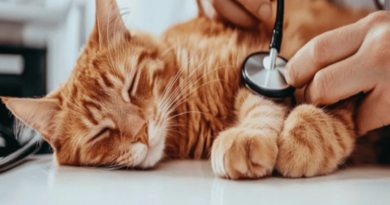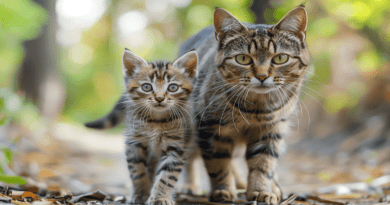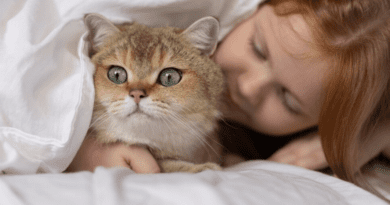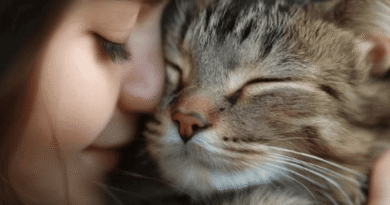Scientific Studies on Feline Behavior
Feline behavior has long intrigued both pet owners and researchers. Unlike dogs, cats possess a more solitary and independent nature, making their behavior seem more mysterious. Recent scientific studies have delved deeper into understanding why cats behave the way they do. Researchers have examined how genetics, environment, health, and human interaction shape feline behavior. Understanding these factors not only improves pet-owner relationships but also enhances the welfare and well-being of domestic cats. This article explores recent findings, providing insights into what drives feline actions and how scientific inquiry has advanced our understanding of their complex nature.
Genetics and Behavior
Several studies have investigated the genetic foundation of feline behavior. One research project, led by the University of Edinburgh, explored how domesticated cats share behavioral traits with their wild relatives. The team identified several genetic markers linked to fear responses, aggression, and playfulness. These genes influence a cat’s adaptability to human environments and their interaction with people and other animals. Cats that exhibited a higher degree of wild traits were found to be more independent, showing lower levels of affection toward humans compared to cats with domesticated lineage.
Furthermore, a separate study from the National Institutes of Health (NIH) revealed that coat color could correlate with certain behavioral traits. Tortoiseshell cats, for example, displayed higher levels of aggression in certain situations, while black cats showed more calm and laid-back temperaments. Researchers believe this correlation between coat color and behavior results from genetic linkages, where certain genes governing coat color also influence temperament.
Environmental Influences
In addition to genetic factors, a cat’s environment plays a significant role in shaping its behavior. A study published in the journal Applied Animal Behaviour Science examined the impact of early life experiences on adult feline behavior. The research concluded that kittens raised in enriched environments with ample stimulation—such as toys, interaction with humans, and exposure to different sounds—developed better social skills and exhibited lower anxiety levels in adulthood. Cats raised in isolated or stressful conditions, on the other hand, displayed higher levels of aggression, fear, and avoidance behaviors.
Urban environments can also alter feline behavior. A team from the University of Bristol found that cats living in densely populated cities exhibited more territorial behavior compared to those in rural areas. In urban environments, cats often face higher competition for food and territory, leading to increased aggression and anxiety. Conversely, rural cats, with access to larger spaces and fewer rivals, tend to show more relaxed and exploratory behavior.
Human Interaction
The bond between humans and cats directly impacts feline behavior. A landmark study by Oregon State University explored attachment styles in cats, revealing that felines develop attachment bonds similar to human infants and dogs. In secure relationships, cats displayed a strong desire to be near their human companions, showing signs of trust and comfort when their owner returned after a period of separation. Cats in less secure attachments exhibited signs of distress or aloofness.
Human behavior also influences feline reactions. A study from the University of Lincoln highlighted how a cat’s personality and actions mirror those of their owners. Cats living with anxious or stressed owners showed increased signs of anxiety, while cats living with relaxed and social individuals displayed more positive behaviors, such as increased affection and playfulness. The way owners interact with their cats—whether through regular petting, playing, or even verbal communication—significantly shapes a cat’s personality and its ability to form trustful, secure bonds.
Health and Behavior
Health issues can profoundly affect feline behavior. Studies published in the Journal of Feline Medicine and Surgery have demonstrated that pain or discomfort often leads to behavioral changes, such as aggression, avoidance, or excessive grooming. Cats with arthritis, for instance, frequently become less playful and more irritable due to pain. Veterinarians and behaviorists recommend that pet owners monitor sudden changes in a cat’s behavior as a potential sign of underlying health problems.
The connection between diet and behavior has also been explored. Research conducted by the Royal Veterinary College in London found that cats fed diets rich in omega-3 fatty acids and antioxidants exhibited lower levels of anxiety and aggression. These nutrients, known for their anti-inflammatory properties, help maintain brain health, reducing behavioral issues linked to stress or poor diet.
Latest News and Ongoing Studies
In the latest studies, researchers are using advanced technology like MRI scans to study the feline brain in detail. Scientists from the University of Helsinki are investigating the neural mechanisms behind specific behaviors such as hunting, grooming, and communication. Their research aims to map out the specific brain regions responsible for different actions, which could lead to improved behavioral therapies for cats with disorders.
Additionally, ongoing research on the impact of climate change on feline behavior has raised concerns about how shifting environments may alter the behavior of feral and domesticated cats alike. Rising temperatures and altered ecosystems could lead to changes in hunting behavior, mating patterns, and territory marking, impacting feline populations on a global scale.
Scientific studies on feline behavior have made significant strides in understanding the complex and multifaceted nature of cats. Genetics, environment, human interaction, and health all contribute to shaping how cats behave. These studies not only enrich our understanding of felines but also offer valuable insights into how we can improve their welfare. As ongoing research continues to unravel the mysteries of the feline mind, pet owners, veterinarians, and scientists alike will be better equipped to care for and understand these enigmatic animals. By applying these findings in daily life, we can enhance our relationships with cats, ensuring a healthier and happier future for both felines and humans.







